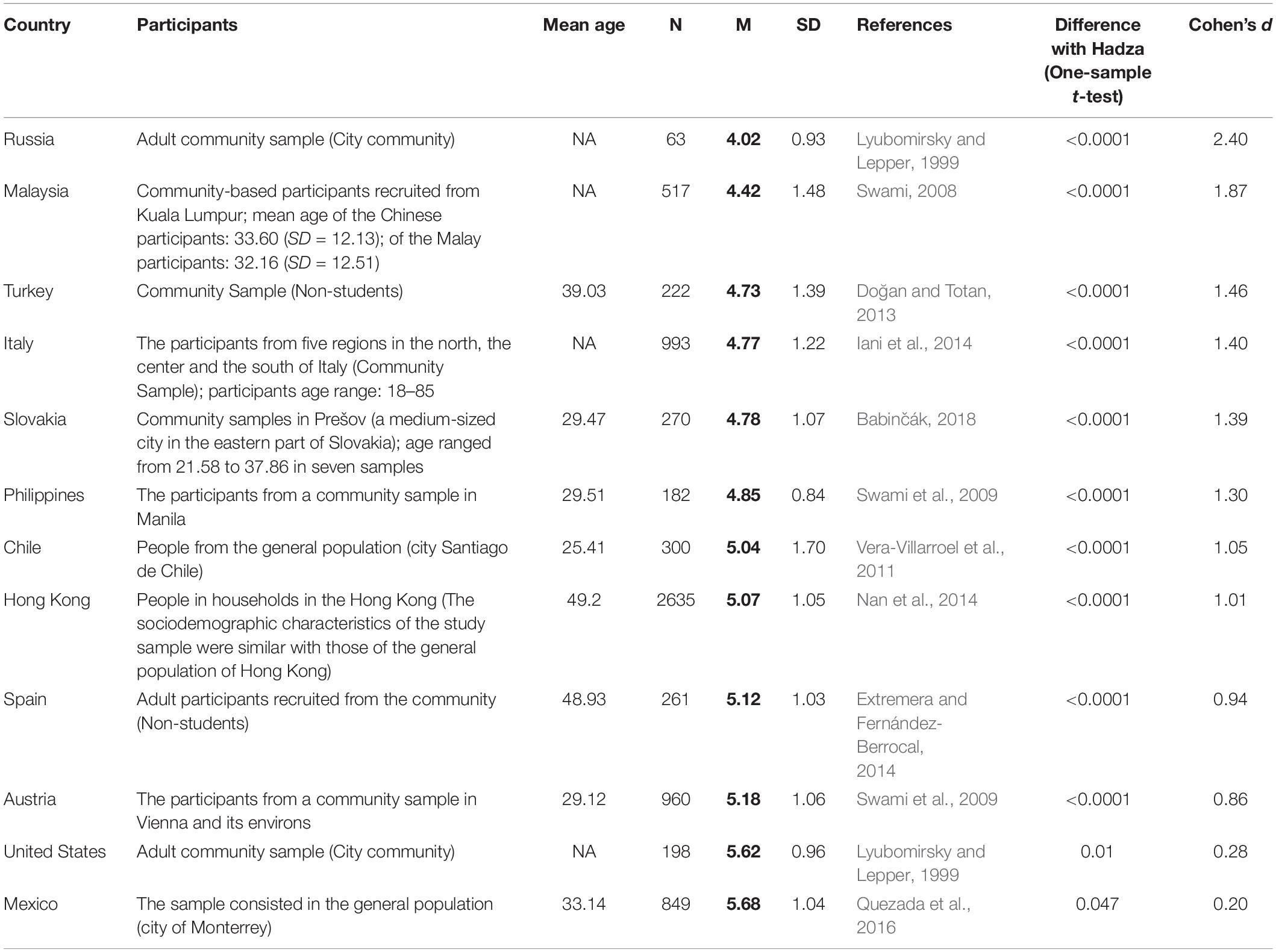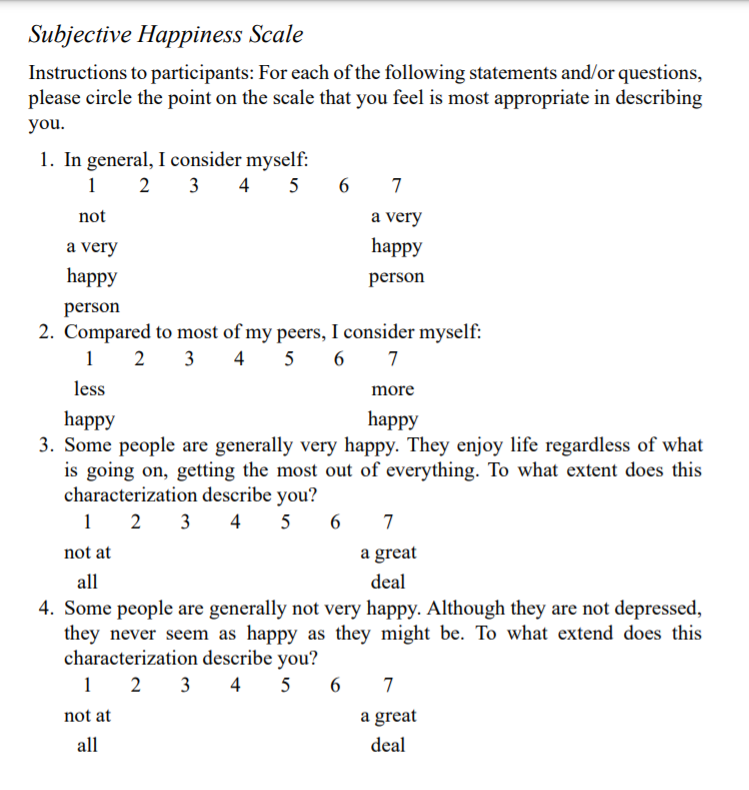Hunter-gatherer happiness
Asking whether life was better in hunter-gatherer times, I wrote: “I haven't found anything that looks like systematic data on pre-agriculture mental health or subjective wellbeing.”
Thanks to commenter Tsunayoshi for linking to some! Subjective Happiness Among Polish and Hadza People is a 2020 study, reporting1 on a survey of 145 people from the Hadza hunter-gatherer society using a four-question oral survey on happiness (the Subjective Happiness Scale - see footnote for the four questions2). The results are then compared to a comparison sample of 156 Polish participants (who were asked the same questions), with the conclusion that the Hadza report significantly higher happiness.
The study also provides a table comparing the Hadza result to happiness scores from a number of other studies:

At an average happiness score of 5.83 on a 7-point scale, the surveyed Hadza outscore all of the other societies examined!
All else equal, this is evidence for the “pre-agriculture Eden” hypothesis that I have expressed skepticism about: perhaps, despite seemingly worse health, hunger, and violence, hunter-gatherers are/were significantly happier than people in the modern world.
I have two reactions here: I doubt this picture would hold up to more research and scrutiny, and I think more research and scrutiny seem really valuable to do in case it does.
Doubts
From my skim, I don't have any issues with the paper itself. It looks well done. However, there are a number of things that make me skeptical that "hunter-gatherers are happier" would hold up to a more extensive research program:
- This is only one study,3 covering only one hunter-gatherer society (unlike all of the analyses I presented in this post, which each looked at data from more than one society). By default, I treat any one study as only a light update, and I generally expect results to be less likely to hold up the more striking and exciting they are. (Reasons include regression toward the mean and bias in academic incentives.)
- Given the big cultural differences between hunter-gatherers and modern-lifestyle societies, I suspect that a lot of what’s going on here has to do with how the survey questions are being interpreted, and/or how people are perceiving their role as study participants.
- The pattern from most of the literature is that average happiness is higher in richer countries, and I think there are a number of pretty clear dimensions on which hunter-gatherer quality of life looks worse than modern-lifestyle quality of life. While it’s certainly possible to come up with possible reasons hunter-gatherers could be happier, I don’t know of any such reasons that seem to have very high initial plausibility.
- 5.83 on a 7-point scale just seems very high, which to me points further toward something about "how people perceived the survey and the expectations for answering." I don't generally expect the "state of nature" to be associated with such high happiness.
Value of more research
But imagine that dozens more studies like this were done, with a variety of different survey methodologies in a number of hunter-gatherer societies, and they continued to show that hunter-gatherer societies seem noticeably happier than modern-lifestyle societies.
At that point, I think we’d be looking at a potentially hugely important area of research, and it would be worth dramatically raising investment to try to understand why such differences might exist (particularly given the seemingly poor nutrition and health of hunter-gatherer societies). For example, people living modern lifestyles could be recruited to try imitating different aspects of hunter-gatherer lifestyles, to see whether these produce a boost in happiness.
The kind of study I've linked here seems relatively straightforward to conduct, as studies go: it doesn’t require the researchers to enforce unusual policies or interventions, and it doesn’t require trying to unravel questions about causality. It seems to me that further studies like this would be very worth pursuing (and that it’s too bad this appears to be the only study of its kind to date - though if you know of more, please let me know)!
Footnotes
-
Here I focus on the “Study 2” part of the paper; “Study 2” has more detailed comparisons than “Study 1,” and they are both focused on the Hadza. ↩
- From this paper:
↩
-
Technically two studies, but they are using substantially similar survey methods, among the ~same populations at the ~same time. Also, the paper cites prior literature, but I don’t think it is nearly as relevant to the question of hunter-gatherer happiness. I also searched the “cited-by” references for the paper and didn’t find anything else. ↩
For email filter: florpschmop